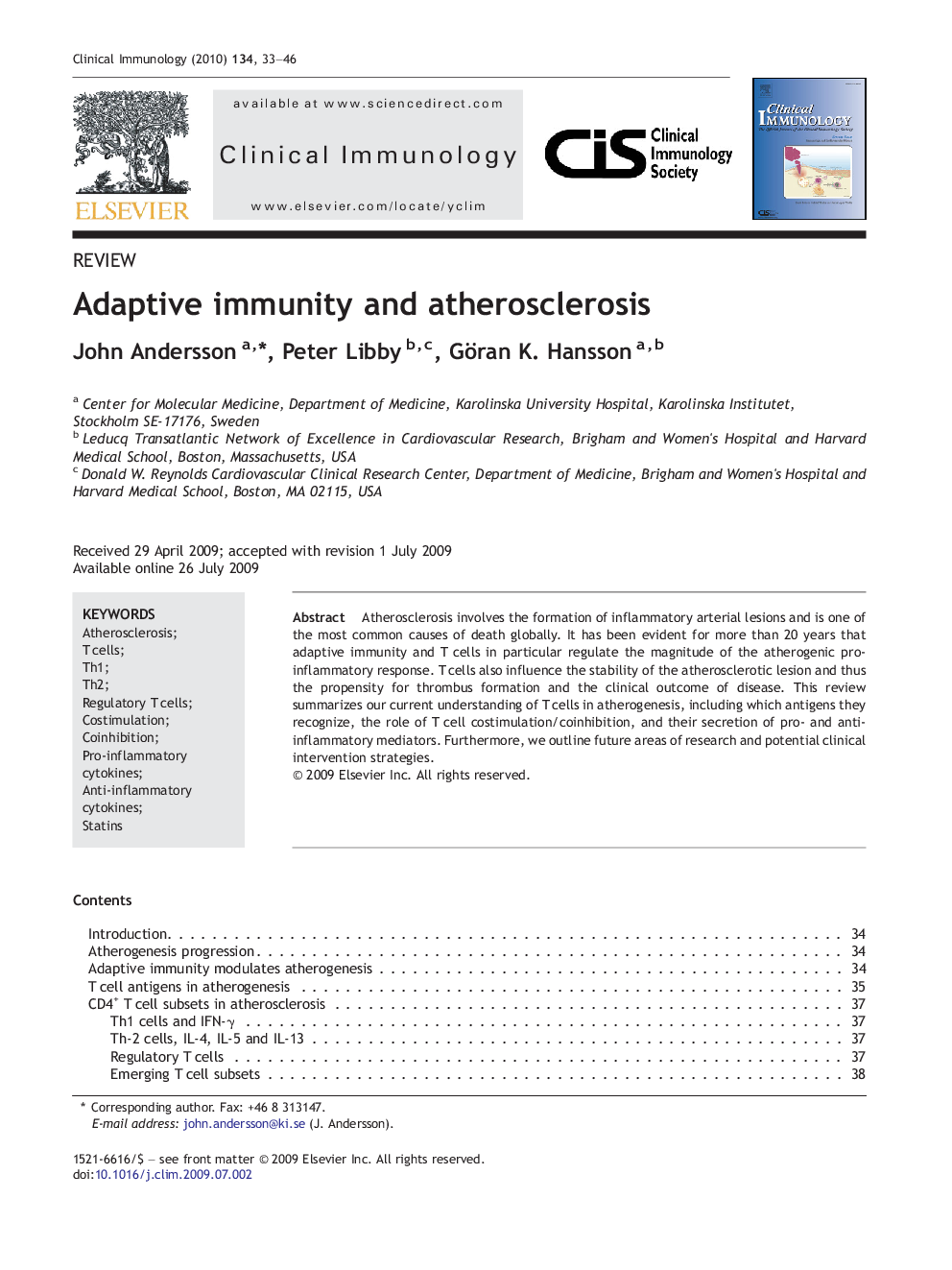| Article ID | Journal | Published Year | Pages | File Type |
|---|---|---|---|---|
| 3257855 | Clinical Immunology | 2010 | 14 Pages |
Atherosclerosis involves the formation of inflammatory arterial lesions and is one of the most common causes of death globally. It has been evident for more than 20 years that adaptive immunity and T cells in particular regulate the magnitude of the atherogenic pro-inflammatory response. T cells also influence the stability of the atherosclerotic lesion and thus the propensity for thrombus formation and the clinical outcome of disease. This review summarizes our current understanding of T cells in atherogenesis, including which antigens they recognize, the role of T cell costimulation/coinhibition, and their secretion of pro- and anti-inflammatory mediators. Furthermore, we outline future areas of research and potential clinical intervention strategies.
